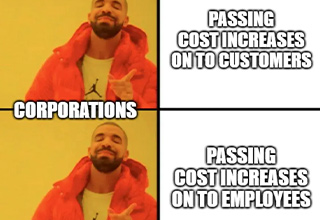Priorities, Time-realization Theory Original Work
The brain is naturally a prioritizing machine, even without training. While logically some activities would seem to be a high priority (such as taking care of your health), in reality they don't register to the brain as high priorities relative to other things that need attention. Why? I propose that a large part of the reason is because fantasies for the future are open to too many unrealistic possibilities.
We can't change the past, we have limited control over the present, and the future is open an increasing number of possibilities the further we look. It's as if there's a spectrum of time from past to present to future and parallel to that spectrum lies another spectrum with realization on the end corresponding to the past and increasingly more potential as you move toward the future. And what determines what we realize and what's possible is mostly determined by our decisions. I believe that within the laws of nature and the impact of our decisions our ability to determine our own destiny is much, much greater than most people realize.
Making good decisions is best when using good, real data. Most solutions are made to solve problems that exist as opposed to fantasy problems. It follows that you should attempt to make better decisions for your life based on the realization of decisions you've made in the past, not on a fantasy that is quite possibly based on wishful thinking. The past is what's been realized, providing the best data and feedback you can get. So, instead of thinking that you will make better decisions tomorrow, remember the decisions you made in the past and the reality that you now experience as a result of those decisions and use that to determine what you will do in the present.
The urgent always seems to trump the important. There has to be a sense that what needs to be done for a better future is urgent. In my opinion, the best way to do that is with regret and gratitude for past decisions. What's been done can't be affected by wishful thinking. The key is not to look at what you want for the future, for the future is only a daydream, but to look to the past and remember the many, many decisions you've made that have determined the life that you're living now.
Practically speaking, if you don't feel like doing it today, you probably won't feel like doing it tomorrow either. What can be postponed for tomorrow can and probably should be done today because tomorrow is a pipedream. It becomes a cycle of endlessly postponement. Eventually, you get to a point where you are faced with regret because it's too late to undo what's been done. If you've ever made a decision or a series of decisions that have had a strong impact on your present of future, regret or gratitude is inevitable whether you like it or not. Better now when there's opportunity for change than when it's too late.






2 Comments